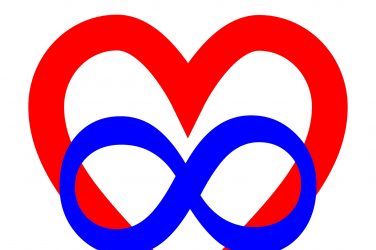It hit me when she said her grandmother had worn a brown shirt – as a member of the Hitler Youth.
The graduate school classmate sitting across from me at a table in a lovely Prague cafe, was explaining why nationalism in Germany is viewed so differently than nationalism in the United States, why Germans are often reticent to brag about all the good and noble things they have contributed to the world.
It’s a reticence relatively unfamiliar to the post-WWII American.
The German work ethic, culture, precision in manufacturing is a source of pride in Wisconsin, where I grew up. Breweries, sausage, Germans had a huge influence in the development of the state, it’s still the largest immigrant group.
I’m of German descent, like many of the kids I grew up with, and we were proud of that.
Proud in a distinctly American way, flying German flags in places Germans wouldn’t, restaurants, businesses, festivals.
When I met Germans in Europe, they did not feel compelled to stand on a chair and give a yell about how great their country is.
Most identified first as Europeans and were critical of nationalism as any sort of practicable ideology.
“But why does nationalism, being proud of your country and sharing that, and being inclusive and excited about other countries’ ideas have to be mutually exclusive?” I asked my friend. “Why is nationalism viewed as a slippery slope ending in hate and racism? Can’t you be proud of your country and what it has done while acknowledging the great things other nations have done too?”
“Our country caused such pain in the world, and brought about such horror, excessive nationalism, in part, caused that,” she said.
Oh. Right. I had never thought about that way.
In the context of nativist, far-right parties growing throughout the continent as many countries grapple with how to accommodate waves of immigrants and remedy economic recession, I understand the apprehension towards ostentatious displays of pride.
Part of what is so compelling about the EU is how countries give up some sovereignty to belong. Willfully contributing pieces of nationhood to a union, however clunky, all to avoid another war.
As my European classmates grappled with what exactly it meant, what it looked like to be wholly European together, I took pride in my country’s civically based nationalism and citizenship.
“No messy entrenched ethnic ties here that distinguishes one American from another in the eyes of the law.”
Sure there’s racism, discrimination, but as American citizens we subscribe to a shared values of liberty and freedom and self-determination. Not a “who’s who of ancient land records and wars and class” battle.
But the very benefits of that system are drawbacks too. What fiercely unites one tribe at the exclusion of another, is still fiercely uniting. Uniting in a way that America’s disparate peoples from different places, creeds, languages don’t quite have, regardless of how long they’ve been melted together.
Embracing national pride in Ukraine
This disparity surfaced over a sing-along campfire Ukraine.
In the summer of 2013 I taught English to college students near Lviv.
All of them knew the songs. Dozens of Ukrainian folk songs with perfectly pitched five-part harmonies.
It was astonishing. Song after song after song the students sang around this massive campfire.
How did they all know the same songs? And so many of them?
The American teachers marveled. It was beautiful. I tried to think of a song to share.
Quick, quick, think of a song. Any song.
“My Country Tis of Thee,” “This Land is your Land,” “America, the beautiful…”
I could only remember the first couple words in each. I couldn’t think of any songs. Why didn’t we learn American folk songs better?
We managed to piece together the “Star Spangled Banner”, but that was it.
But here were these Ukrainians singing verse after verse after verse, then moving on to another song’s four verses. It was incredible. There’s something strong that binds there, where 20-something Ukrainians retain and can readily recite the songs of generations past. It’s an outward expression of nationalism and belonging I hadn’t heard anywhere else among young people in Europe.
Ukrainian pride is distinct; founded upon a past unlike any I had encountered during my time in Europe. I found the place and its people fascinating, friendly and warm. I loved my time there.
Discussing nationalism in Ukraine is tricky today as war rages on in the Eastern part of the country.
Those I met in Western Ukraine saw themselves as European, and many wanted to see their country become a part of the EU.
The Western Ukrainians I met, many of whom were a part of the Ukrainian Catholic Church, which was outlawed and forced underground during the Soviet Union, took fierce pride in their identity as Ukrainians. They saw Russia as an invader and were convinced it was trying to eliminate Ukraine and its distinct identity.
Being an American in Ukraine starkly jabbed my sense of self.
I felt like I was newly seared, newly struck every time I talked to a Ukrainian student. Every encounter yielded new revelations, new internal questions about people and how they’re shaped by the places and how where I had come from
“What do Americans think of Ukraine?” was a common question from students.
I never knew what to say.
This was before Ukraine was making daily headlines in the U.S. for its protests and general upheaval.
Before that, we didn’t really think of Ukraine at all.
Ukraine, honestly had never really crossed my mind before I had the opportunity to travel there.
How do I say that to someone?
“Um, we don’t think of you actually. We don’t think anything. You’re not even on our radar. Most people probably still think you’re a part of Russia.”
Naturally, I lied. I told her that Americans think Ukraine is great. We love Ukraine.
At least this American loved Ukraine.
Another horrifying revelation was learning about Holodomor. The genocide of Ukrainians by Stalin, where as many as 7.5 million people were starved to death between 1932 and 1933.

I had not even heard of it.
It didn’t even ring a faint bell. I was stunned.
How could I have not even heard of the mass starvation of millions?
I felt like an idiot. An overly incubated, fat baby-chick American.
I was working on a Master’s degree. How in the hell had I never come across this bit of history? Another genocide, another swath of millions wiped off the earth?
The students I taught had relatives who had died in the Holodomor, I heard one tale of familial cannibalism. They talked about how many of their grandparents’ generation were killed.
Thinking about it made me incredibly sad.
Sad it happened, sad that I didn’t know about it, sad that I was born into circumstances of such privilege and comfort, of relative ease.
I resented how soft that probably made me. How inadvertently ignorant I was to the experiences of so many.
This continues to be a frustration and a precarious balance between acceptance and hopefulness and self-flagellation and helpless guilt.
Not because I wanted to be the savior that swooped in to help, or because I looked down on my Ukrainian students because of the struggle their country has endured.
But because I just knew nothing of what that experience felt like. And there was nothing, really, that I could do to change that.
I was the white American girl, with grand aspirations of bridging the divides by telling stories with my feeble words.
Opening windows. I so desperately want to open the world’s windows…
How does a country’s past, its struggles, its shame shape the people it bears?
Ukraine has a long history of occupation before its independence at the fall of the Soviet Union. It was a part of the Hapsburg Empire, then it was a part of Poland, then Russia.
Ukrainians have been struggling for independence, a country of their own, for centuries.
How does being occupied for centuries, being forced underground influence the dispositions, identities and perceptions of people?
You get the sense when you’re in Ukraine that these people have really been through things. Things American millennials have not, and likely will not.
That they understand struggle.
And more than struggle, they understand the prolonging of it. What it’s like to have that struggle go on and on and on.
In the U.S. our attention spans have been so clipped, our capacity to endure, our patience, so curtailed. At least mine is. I’m ashamed at how attention-deficit and impatient I am. How inclined to instant gratification, always striving for faster paced achievement.
There’s a hardening, a strength, surely that arises from a nationhood persisting on over decades of struggle and searching for independence and stability.
In the U.S., we talk about that when we talk about America’s Greatest Generation, people who were products of wars and tangible, food-line filled economic despair. But even then, it’s different than what the people of Ukraine have experienced for generations. America as a nation has always been in control of itself. We really have no conception of what it’s like being ruled over by another.
I think the key to understanding nationalism, wherever and however it manifests, is to know the people who claim it. They avoid it or champion it because of experiences no one but them can claim, and though an American living across the pond will never fully know what its like to experience it to, to be German, to be Ukrainian, it surely doesn’t hurt to try to build a bridge where we all can meet to talk about it.
Teaser photo: Jim Brickett (Flickr); Licence: CC-BY-ND 2.0






